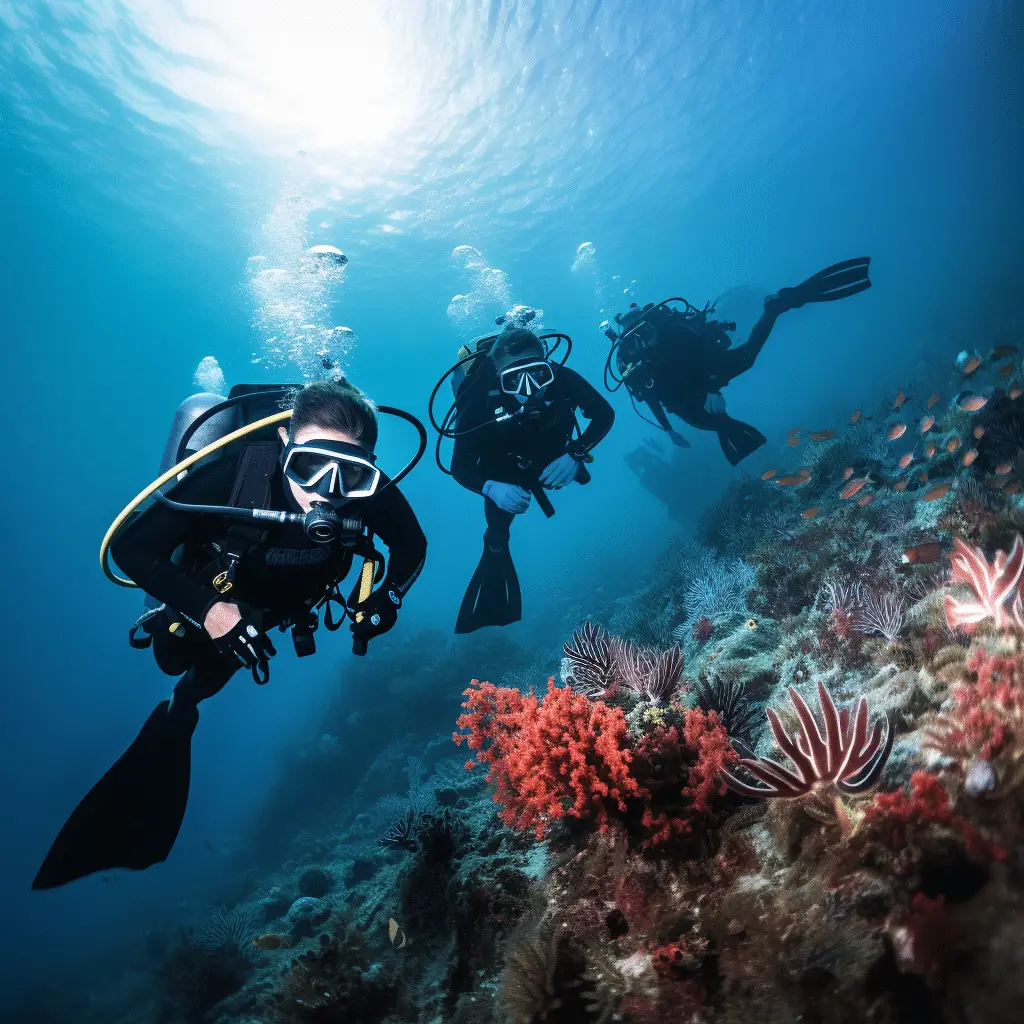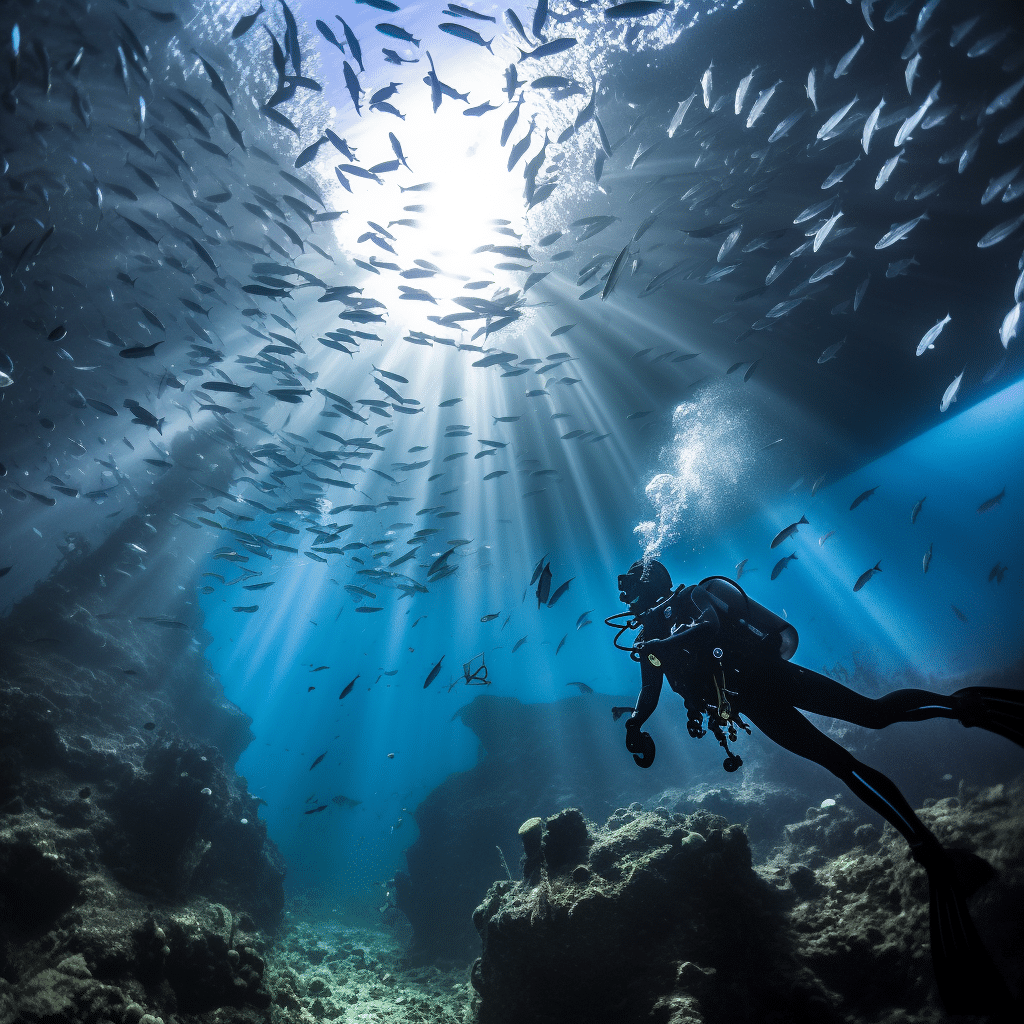The ocean covers a whopping 70% of our planet. It’s a vast and diverse ecosystem that supports countless marine species. But, climate change and human activities are threatening them. Conservation efforts are a must! Governments and organizations play a big role in protecting the ocean, but individuals can too.
Diving offers a special chance to explore the underwater world. But with it comes a responsibility to not cause harm. Responsible diving techniques should be used. For example, respect marine life and their habitats. Don’t touch fragile corals. Use environment-friendly sunscreen. And never ever remove a creature or artifact from its habitat.
Individual divers can join scientific research and conservation initiatives. Citizen science programs let them collect data on marine species and patterns. This helps scientists understand the health of marine ecosystems and find areas that need protection. Plus, joining local clean-up events reduces pollution in coastal areas and underwater environments.
Pro Tip: Before diving, research dive operators that prioritize sustainability. Choose ones with rules that ensure diver behavior has a positive effect on conservation efforts. Support responsible dive businesses to make sure your underwater adventures help the ocean.
Understanding the importance of individual divers in marine conservation

Divers are key players in marine conservation efforts. They understand the importance of preserving underwater life. With access to the marine world, divers have the power to observe and record species, alert any signs of damage or contamination, and take part in clean-up activities.
By engaging in reef monitoring, divers provide essential information to scientists and researchers. This helps them comprehend the effects of climate change, pollution, and overfishing on these delicate systems.
Also, individual divers are passionate supporters of marine conservation. Through their interactions with other divers and communities, they can raise awareness about the threats to our oceans. They do this by sharing their stories and experiences, which encourages responsible diving practices.
An example of the significance of individual divers in marine conservation is Jason Isley. He is an underwater photographer based in Southeast Asia. His photographs display the beauty of marine life while also highlighting issues such as plastic pollution and habitat destruction. Through his work, he has reached a large audience and gained support for conservation initiatives.
Educational initiatives for divers
Divers can obtain certifications to learn responsible diving practices and environmental stewardship! Furthermore, there are courses to deepen understanding of marine life, habitats, and ecosystems.
Not to mention, citizen science projects for collecting data on marine life. Plus, workshops and seminars offer insights into pressing issues and practical solutions.
Volunteer opportunities are available too; divers can contribute to habitat restoration, coral reef monitoring, or beach clean-up initiatives.
For individual divers, the key is to respect marine life, follow diving regulations, and reduce impact on fragile ecosystems.
Pro Tip: Keep up with research findings and tech developments in marine conservation to make informed decisions during dives that benefit the environment.
Sustainable diving practices
Sustainable diving starts with being mindful of our impact on the underwater environment. Don’t touch or step on coral reefs. Admire them from a safe distance.
Use reef-safe sunscreens without oxybenzone and octinoxate. These are harmful chemicals that can harm marine life.
Avoid anchoring on fragile seabeds. Mooring buoys or designated areas help minimize damage.
Pro Tip: Choose dive operators that follow sustainable practices and promote responsible diving. This contributes to protecting our oceans.
Supporting marine conservation organizations
Donate! Even small contributions can make a huge difference. Volunteer in various research, clean-up, and educational programs. Share your passion for marine conservation with others, using social media or conversations. Adopt sustainable practices while diving – no touching or damaging coral, respecting marine life, and disposing of waste properly. Become an advocate and use your voice to support policies that protect ocean ecosystems. Write letters or join campaigns addressing environmental issues.
We must act now and contribute to the preservation of our oceans for future generations. Let’s make a change together and create a sustainable future where marine life thrives. Time is running out and threats like pollution and habitat destruction are increasing. Join the movement and support marine conservation organizations today!
Spreading awareness among fellow divers

Let’s spread awareness about marine conservation! Educate fellow divers about protecting marine ecosystems and the consequences of human activities. Encourage them to dive sustainably and support conservation organizations.
Organize workshops and seminars. This is a great platform for discussing conservation initiatives and focusing on the challenges faced by marine life. Invite knowledgeable speakers to make the environment engaging, and promote active participation in conservation efforts.
Social media is a powerful tool. Post informative content – e.g. responsible diving tips and updates on conservation projects. Share captivating photos and videos of marine life. This will create a sense of awe and foster a deeper connection with nature.
Connect with local dive shops and clubs. Collaborate with them to reach a wider audience of divers. Organize joint activities like beach cleanups or underwater surveys. This demonstrates practical ways of contributing to preserving marine ecosystems.
Everyone has a role in safeguarding our oceans – no matter if you’re experienced or just starting out. So let’s join forces to spread the word and inspire fellow divers to protect marine environments. Together, we can make a difference!
Conclusion
Individual divers have a massive role in marine conservation. By following responsible practices like not disturbing marine life and avoiding anchoring on coral reefs, they can protect fragile ecosystems. Also, taking part in initiatives like reef monitoring programs allows divers to give important data for research and conservation goals. With their one-of-a-kind view from underwater, divers can become ambassadors for the oceans. They can share their experiences and raise awareness on the importance of conservation.
Moreover, they can help local conservation organizations by volunteering for beach clean-ups and habitat restoration projects. By taking part in these activities, they can directly contribute to the preservation and restoration of marine environments. Also, divers can make smart choices in their everyday lives by lowering single-use plastic consumption and supporting businesses that prioritize environmental sustainability.
According to NOAA, 4 million people dive recreationally in the USA each year.
Frequently Asked Questions
1. How can individual divers contribute to marine conservation efforts?
Individual divers can contribute to marine conservation efforts by practicing responsible diving techniques such as not touching or removing marine life, avoiding destructive behaviors like anchoring on coral reefs, and reporting any damage or pollution observed underwater.
2. Is it important for divers to have proper training and certification?
Yes, it is crucial for divers to receive proper training and certification from reputable dive organizations. This ensures that they have the necessary knowledge and skills to dive safely, understand marine ecosystems, and engage in conservation practices.
3. What can divers do to reduce their environmental impact?
Divers can reduce their environmental impact by using reef-safe sunscreen to protect themselves without harming marine life, avoiding single-use plastics, practicing good buoyancy control to prevent accidental damage to fragile habitats, and participating in organized underwater clean-up initiatives.
4. Are there any specific marine species divers should be cautious about?
Yes, there are certain marine species that divers should be cautious about to minimize disturbances. Examples include corals, seahorses, and nesting turtles. Divers should maintain a safe distance and avoid direct contact or interference with these vulnerable species.
5. Can divers contribute to scientific research and monitoring efforts?
Absolutely! Divers can contribute to scientific research and monitoring efforts by participating in citizen science programs. These programs allow divers to collect data, take photographs, or record observations that can be used by scientists to study and protect marine ecosystems.
6. How can divers promote marine conservation awareness?
Divers can promote marine conservation awareness by sharing their experiences and images responsibly on social media, educating others about the importance of marine ecosystems, advocating for sustainable diving practices, and supporting local marine conservation organizations through donations or volunteering.
